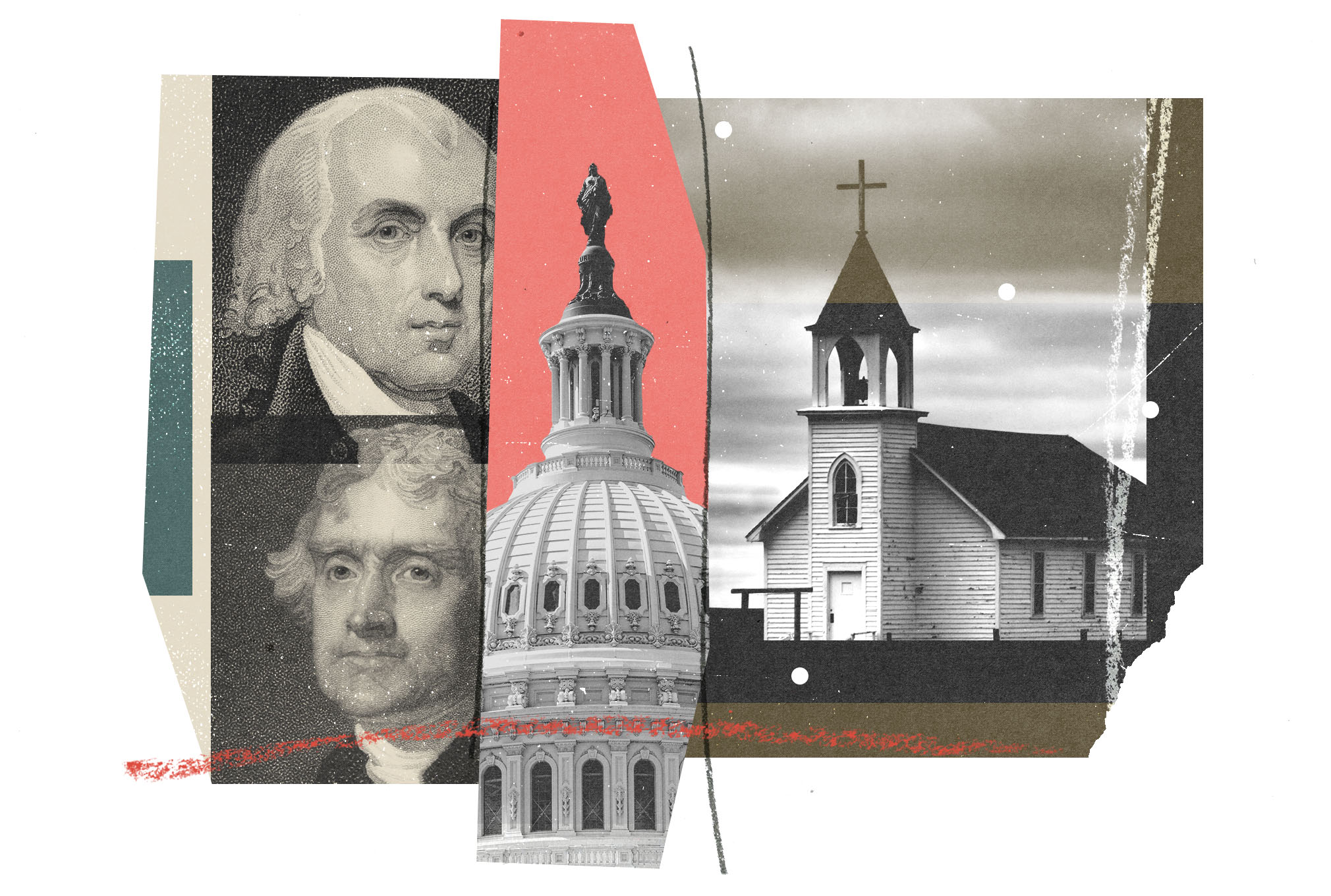
The Foundation of Classical Mechanics
Isaac Newton’s Philosophiae Naturalis Principia Mathematica (published in 1687, with revised editions in 1713 and 1726) lays the foundation of what we now call classical mechanics, allowing us to calculate planetary orbits, compare them to observations, and make predictions, which is a fundamental part of science. Even more so, Newton showed that the laws of physics that are valid on Earth are also valid in outer space, which is not necessarily obvious (but is a very fundamental idea that allows us to understand the universe).
—Michaela Kleinert, Professor of Physics
Origins of Totalitarianism
What counts as “most important” is relative—a matter of historical context, timing, and the way ideas ripple and resonate over time. Copernicus’s De revolutionibus orbium coelestium, for instance, was arguably the most important book published in 1543, as it replaced an Earth-centered cosmos with a sun-centered solar system, thus suggesting a radically new place for humans in the universe. But the idea had been around for a long time (textually, as early as the fourth century BCE), and it didn’t fully convince many people until Galileo’s telescope (1610) and Newton’s law of gravity (1687) provided additional proof. Hannah Arendt’s The Origins of Totalitarianism (1951) may not be the most important book ever, but it is (unfortunately) proving enduringly relevant, and it is one of the more compelling books now for its systemic analysis of how societies provide the breeding ground for not just Nazism and Stalinism, but also autocratic political ideologies. If Copernicus’s map was revolutionary in removing humans from the center of the universe, Arendt’s book is prescient in mapping how modern liberal societies create the conditions of “radical and desperate” loneliness and unbelonging, which, she argues, fuel surges in the kinds of tribalism, militarism, and misinformation we see flourishing at home and abroad today.
—Wendy Petersen-Boring BA’89, Associate Professor of History
The Ishango Bone
At the risk of adopting an overly abstract definition of a book and deviating from my narrow realm of expertise, I contend that the most important book is a bone—namely, the Ishango bone. Roughly 20,000 years ago, in what is now the Democratic Republic of the Congo, someone scratched small line segments onto the sides of a mammalian bone, topped the bone with a piece of rock, and (upon the bone’s unearthing in the mid-twentieth century) unknowingly sparked a debate about whether patterns in the bone’s etchings constituted an astronomical calendar, a numeric system cognizant of prime numbers, or a straightforward tally of some long-forgotten events. Whatever its original purpose, the Ishango bone symbolizes humanity’s penchant to systematize knowledge, and the debate surrounding it epitomizes our perpetual reflection on humanity’s capacity to understand. It shows that all people, across time and regions, are unified by a shared heritage of learning. It’s an important book, which just happens to be written on bone.
—Tim Johnson, Grace and Elmer Goudy Professor of Public Management and Policy Analysis; Director, Center for Governance and Public Policy Research
A Digital Library
The Library of Congress is now essentially one very large book that can be searched cover to cover. Since its database comprises the most comprehensive collection of books in history, you could make the case for its being not only the most important book ever written but the most important book that ever will be written; it will grow and include all, like a giant amoeba engulfing every text and narrative it encounters. The only thing that could stop it is some apocalyptic narrative (and there are many, of course) in which all the lights of humanity go out. Even then, surely someone near the end will plug a thumb drive into the USB port, download everything and pack it in lead for the future to discover.
—Michael Strelow, Professor Emeritus of English
The Laches
This is a loaded question, no doubt, so I will choose the book that is most important for me, because it fundamentally changed the way I think about how I live and how I work and what (if anything) I can know. For me, for the purposes here, I nominate The Laches (380 BCE), by Plato. A rather short Socratic dialogue, actually, a mere twenty-three folio pages, and a mostly overlooked work.
—Joe Bowersox, Professor and Dempsey Endowed Chair in Environmental Policy and Politics
Our Bodies, Ourselves
Our Bodies, Ourselves was a paradigm-shifting health manual created by feminist activists in 1969. It began as a mimeographed, stapled pamphlet passed between readers at a time when accurate information about women’s bodies was scarce or withheld. Since then, OBOS has been revised nine times in the United States, with more than thirty translations and global adaptations, and a brand new edition for transgender communities. Intended to empower readers with practical information and advice on communicating with doctors, the book radicalized the “self-help” genre with an emphasis on collective knowledge-building. Its first-person accounts and revisions based on readers’ input anticipated the internet as a site of crowd-sourced and evidence-based health information and advocacy. It opens a window onto fifty years of feminism and contested ideas about bodies, difference, experience, and authority.
—Leslie Dunlap, Continuing Professor of History
Keynes’ Theory
The General Theory of Employment, Interest, and Money, by John Maynard Keynes, revolutionized economic thinking. In 1936, this book unveiled the nature of capitalism as a monetary production system; exposed three fundamental flaws of capitalism–unemployment, instability, and arbitrary distribution; and proposed measures to salvage but nonetheless transform capitalism. Its ideas provided the intellectual foundation for FDR’s New Deal and for many other modern capitalist institutions. Today, The General Theory continues to exert tremendous influence. As Keynes famously writes, “The ideas of economists and political philosophers, both when they are right and when they are wrong, are more powerful than is commonly understood. Indeed, the world is ruled by little else. Practical men, who believe themselves to be quite exempt from any intellectual influences, are usually the slaves of some defunct economist.” What book is more important than the one that emancipates us from “defunct” economists?
—Yan Liang, Peter C. and Bonnie S. Kremer Endowed Chair of Economics
Invisible Man
Invisible Man (1952), by Ralph Ellison. It is often cited as the greatest American novel, in large part because it plays upon the sensibility of that other great American novel, Huckleberry Finn. Still, Invisible Man is a classic in its own right as our unnamed narrator moves from the South to the North in the early decades of the twentieth century, trying to suppress his Southern upbringing and values in order to be an “important” Northern social and community activist. His failure presages a point Ellison would make in subsequent essays and speeches, that Black American culture is American culture and that one day there would be no apparent difference between the two. The rise and triumph of Black music—from jazz and early rhythm and blues to dance music and hip hop culture—as an international phenomenon confirms that Ellison was only partially right: Black music is synonymous today with world music.
—Tyrone Williams, PNCA Creative Writing Faculty
Two Lost Texts
The book I consider most important is not an existing tome, but rather one that is missing. If the whole is the sum of its parts, we can agree Euripides’ 415 BCE The Trojan Women is a masterful and timely antiwar play which feels complete in its dramatic structure. What is missing, though, are the two other plays in the trilogy, Alexandros and Palamedes. The story is incomplete without the other two works, because those works provide context and shifting perspectives with which we can view the stories of Hecuba, Priam, Paris, Helen, the Greeks, the Trojans, and ultimately ourselves in relation to war, war crimes, and the conflicts between the state and the individual. I yearn for these missing texts because I wonder if they can provide a glimmer of hope or a flash of understanding that might help us navigate this dangerous and fragmented moment in our own history.
—Andrea Stolowitz, Playwright and Senior Lecturer in English
Next question: Which twentieth century invention has been the most consequential?
Send your response to magazine@willamette.edu.



